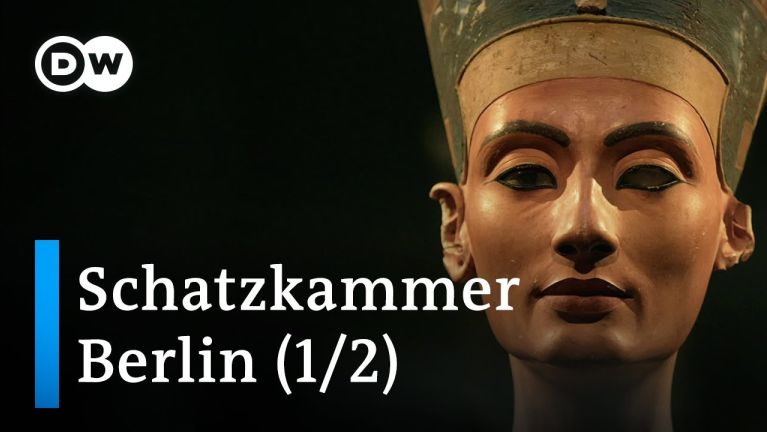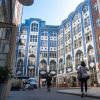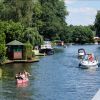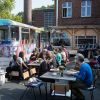“That’s sure to be spectacular”
200 years of Museum Island: Marion Ackermann, president of the Prussian Cultural Heritage Foundation, on Berlin’s cultural diversity.
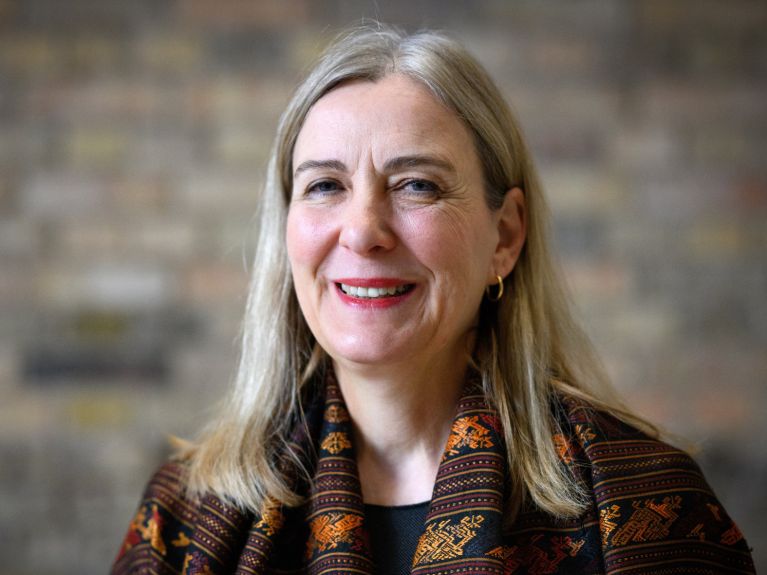
Berlin’s Museum Island is celebrating its 200th anniversary this year. On 1 June 2025 - right in the middle of the anniversary year - Professor Marion Ackermann took over as president of the Prussian Cultural Heritage Foundation (SPK), to which the museums on the island belong. Museum Island, which comprises the Altes Museum, Neues Museum, Alte Nationalgalerie, Bode-Museum, Pergamonmuseum and James-Simon-Galerie, has been listed as UNESCO World Cultural Heritage since 1999. A conversation about new perspectives, target groups and Berlin as a cultural metropolis.
Professor Ackermann, what makes Museum Island so special?
The fabulous collections extending from prehistory to the early 19th century, the iconic museum buildings, which reflect a hundred years of architectural history - and the place itself. The entire Museum Island ensemble is beautiful. To stroll through the Colonnade Courtyard on a summer’s evening or see the museums reflected in the water gives one a brief moment of tranquility at the heart of this city.
Dieses YouTube-Video kann in einem neuen Tab abgespielt werden
YouTube öffnenThird party content
We use YouTube to embed content that may collect data about your activity. Please review the details and accept the service to see this content.
Open consent formWhat awaits visitors in the anniversary year?
It is not just an anniversary year, it’s an anniversary half-decade! The foundation stone for the Altes Museum was laid 200 years ago, so this museum is naturally taking centre stage during the festivities in 2025. Alongside the large special exhibitions, there will be a programme comprising mainly educational and information events. We will be opening the island up to the city and hope to attract new visitors. A different museum will be in the spotlight each year until 2030 - it will be the Pergamonmuseum’s turn in 2027, for example. That’s sure to be spectacular.
The cultural range on offer in Berlin is exceptional.
Berlin is internationally renowned for its art and culture scene. What sets the city apart as a cultural capital?
Its enormous range - not only when it comes to museums. Theatre, dance, music, the independent scene, high culture, galleries, the creative industry. This variety is exceptional. One mustn’t forget that this variety can also be found in other areas in Berlin, however: the major universities and research institutions are equally important for the city, as are the many young people who move here - some for precisely this reason.
And what is your favourite place on Museum Island?
I have many favourite places there. And they keep changing, as one is constantly discovering new things. Such as the Bode-Museum, in which one can almost get lost, or the café in the James-Simon-Galerie with its wonderful view of the Lustgarten park and the Humboldt Forum.
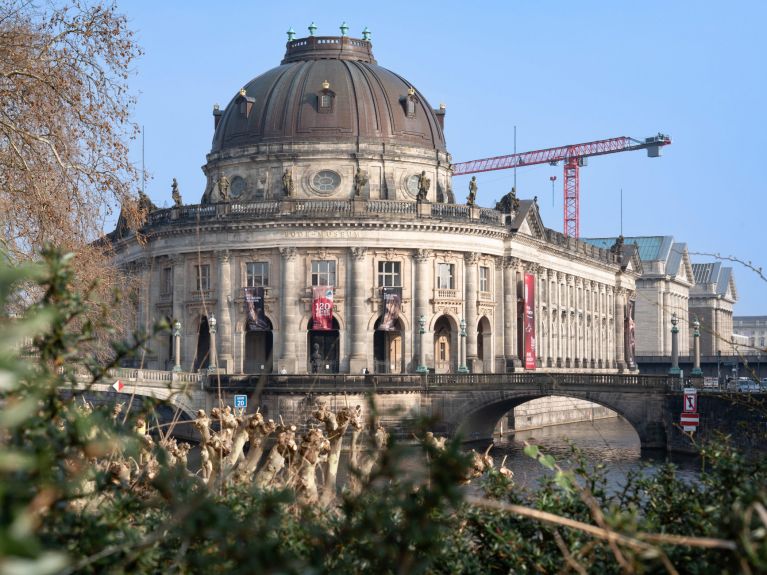
About the interviewee
Marion Ackermann studied history of art, German and history. She obtained her PhD in Göttingen in 1995 with a doctoral thesis on Wassily Kandinsky. She took over as head of Kunstmuseum Stuttgart (Stuttgart art museum) in 2003. From 2009, she ran the Kunstsammlung Nordrhein-Westfalen (North Rhine-Westphalia art collection) in Düsseldorf. From 2016 she was general director of the Staatliche Kunstsammlungen Dresden (Dresden state art collections).
Prussian Cultural Heritage Foundation
Established in 1957, the Prussian Cultural Heritage Foundation (SPK) comprises 25 museums, libraries, archives and research institutes. Its collections document humankind’s cultural development from its earliest beginnings to the present day, both in Europe and on other continents. With around 2,000 employees, the foundation is the largest employer in the cultural sector in Germany. It is jointly funded by the federal and state governments. The SPK is based in Berlin.
